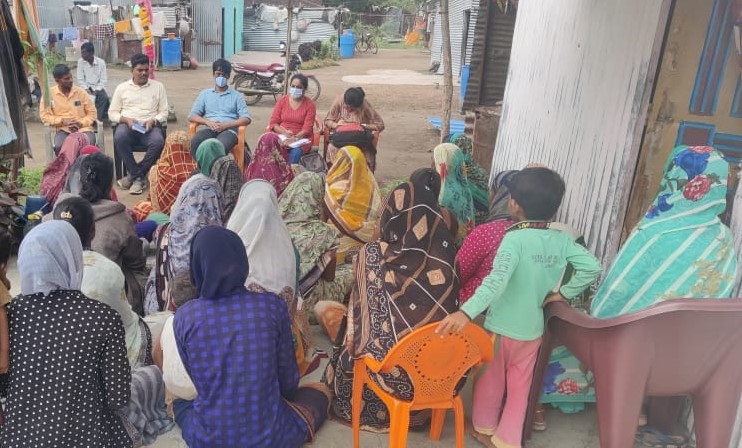Despite several laws that have been enacted to protect the interests of labourers and migrant workers, most of the provisions are hardly implemented. The Interstate Migrant Workmen Act, for instance, was designed to protect migrant workers. But only 309 people have been registered under the law.
As we are closing the two-year mark on the initial lockdown due to Covid-19, it is time for us to reflect on the topic of labour reforms, given that the memory of migrant workers being stranded across the country is still fresh in our conscience. The Supreme Court further brought it to the foreground by asking for the number of migrants involved and affected, and directing the Union government to create a database of unorganized workers in each state.
The Union government has been supporting this cause through e-Shram registration for unorganised workers in the informal economy, and has also developed labour codes for administrative ease of regulatory labour governance. It also developed schemes like Aatmanirbhar Bharat Rojgar Yojana (ABRY) during the pandemic to pick up the slack caused by the economic downturn that followed the lockdown.
While these efforts are laudable, to support workers in real-time, it is essential that enacted codes are implemented efficiently. The main pain point of the previous Acts such as the Interstate Migrant Workmen Act 1979 (ISMW) or the Contract Workers Act 1970 was the ineffective implementation of the regulatory practices enshrined in these Acts. The aim of ISMW is to regulate the employment of interstate migrant workers by specifically outlining the conditions of service, while the Contract Workers Act was designed to prevent the exploitation of contract labourers and to introduce better conditions of work.
These Acts, despite being inclusive and well-intentioned in their design, were rendered toothless owing to lack of awareness, lack of enforceability and administrative hurdles in enforcement. The principal employers and contractors found no incentive to register their workers under these Acts, which led to bypassing of these laws. Under the ISMW, there have only been 309 registrations.
Troubles in Diwashi Tanda
An instance of enforcement-related challenges is worker safety.
During our visit to Diwashi Tanda in the district of Aurangabad in Maharashtra, we came across the Banjara Labhan community that lived in this hamlet. The Banjara Labhan community is a Vimukti Jati (Denotified Tribes) and nomadic tribe according to the government of Maharashtra. When we visited them, they described to us that they were essentially rubble breakers.
Upon conducting group discussions in the hamlet and one-on-one interviews with the gram panchayat members and some other village elders, we came to the realisation that their lives were nothing short of arduous and dangerous. Stone or rubble crushers live in kutcha houses made of tarpaulin, just a stone’s throw away from the National Highway, where vehicles are throttling towards Aurangabad city. “Our community people have been considered temporary occupants here for the past 20 years,” said the former gram panchayat member Raju (name changed).
When asked further about the safety protocols, the women stated, “The men are provided with a thick rope.” The rope not only helps them suspend from the hill for convenience of work, but they are the only form of protection. Women workers are prone to large rocks falling on them, but they are provided with no equipment such as safety helmets.
“We break these rocks and stones so that they are eventually used in the construction of buildings or the laying of roads,” one woman told us. It is very important to understand that workers have no awareness about the execution of the Occupational Safety Codes of 2020.
Provisions of Occupational Safety Codes 2020
According to the Code of 2020, it is considered the duty of the engineer, for any building or construction work, to give high consideration to the safety of the workers. The Code specifies that if women are working under hazardous or dangerous operations, the government requires the contractor to provide adequate safeguards.
The employment of the stone crushers in Diwashi depends on their ability and time. Hence, it varies from person to person, with piece-rate payments. This can lead to up to 12-14 hours of work because there is no timeline provided. The 2019 version of the Bill allowed the appropriate government to notify the maximum daily work hours for workers; in the 2020 version, it specifically mentions the maximum limit to be eight hours.
“For years my body has ached due to work,” complained an old woman, while pointing at her legs and back. Many also suffer from asthma, burning eyes and long-lasting headaches. Contractors do not provide any kind of support for such cases. For the work that the people of Diwashi Tanda are hired for, they are not looked after by the contractors. Only a small percentage of hospital expenditure is provided by contractors. The rest of the expense is covered by the workers themselves through their low wages.
During our visit to Pratap Nagar Naka in Nagpur, the workers also called attention to the lack of safety gears at the construction sites where they worked. Implementation of the codes would help prevent such hazardous activity; upon implementation, specific awareness can be provided along with work safety gears for the rubble breakers. Gears can include heavy weight-coated gloves, yellow hard hats, safety goggles, and harnesses made of sturdy material can be provided.
The Code provides for setting up a State Occupational Safety and Health Advisory Board by the state government. The state government holds the authority over the constitution and procedure of the Board. Apart from this, a technical team can be deployed to support the Board.
Implementation of the Board will help the state keep checks and balances on the safety and health of the workers through stipulated mandates mentioned in the Codes of 2020. This is only possible if the enacted Code is implemented. Legislation is great news, but implementation in real-time and awareness of the same will support the workers as well as the administration.
Shruti Vasudevan is a Policy Analyst at Swaniti Initiative. She is passionate about economics and public policy. Her research interest lies in the social protection of unorganised workers in India.


